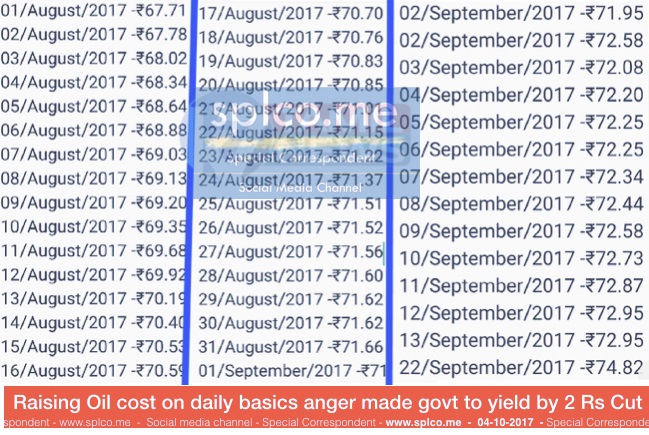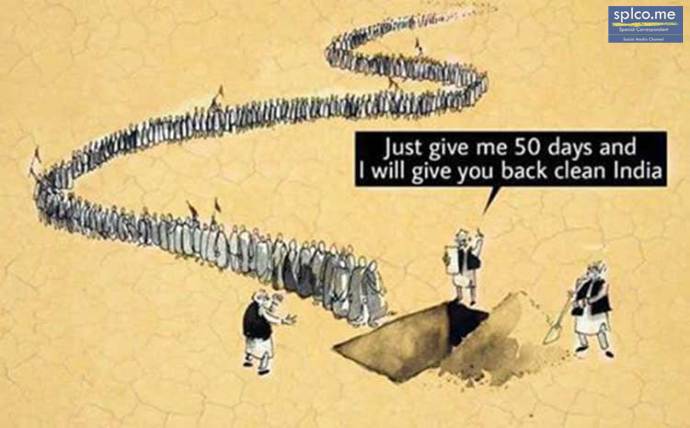Facing public resentment over the recent spike in fuel prices, the government on Tuesday cut the excise duty on both branded and unbranded petrol and diesel by Rs 2 a litre from Wednesday.

On September 20, Finance Minister Arun Jaitley had ruled out a cut in the excise duty. “We need excise revenues to push public investment, and if any state wants to reduce the excise duty, then they can do so,” he had said. With subdued tax collections and the fiscal deficit touching 96 per cent of this year's target in August, the Union government was reluctant to cut the excise duty on petrol and diesel.
But finally yielded to public anger thanks to social media war against modi government.
“The government has reduced the basic excise duty on petrol and diesel (both branded and unbranded) by Rs 2 a litre with effect from October 4, 2017. The revenue loss on account of these reductions will be about Rs 26,000 crore in a full year and Rs 13,000 crore in the remaining part of the current financial year,” the finance ministry announced on Twitter.
This comes at a time when diesel in Delhi scaled an all-time high of Rs 59.14 a litre, while other cities, too, saw a considerable increase in prices. The price of petrol in Delhi was at a two-year high of Rs 70.88 a litre on Tuesday. Currently, taxes constitute the excise duty of Rs 21.48 a litre, 30 per cent of the price of petrol, and Rs 17.33 a litre, 29 per cent, of the price of diesel.
While the revenue loss from the excise cut for the remainder of FY18 was already worrisome , it would exacerbate the concerns posed by other fiscal risks, such as the decline in the surplus transferred by the RBI and the possibility of shortfalls in inflows from disinvestment, etc, said Aditi Nayar, principal economist at ICRA.
The government, however, is clear that there will be no rollback of the market-linked pricing policy for petrol and diesel. The United Progressive Alliance (UPA) government had decontrolled petrol prices in 2010 and had started a phased decontrol of diesel prices. In 2014, oil marketing companies moved to full market-linked pricing for diesel under the National Democratic Alliance (NDA) government.
Besides the excise duty, state governments levy the value-added tax in the range of 25-40 per cent on petrol and 15-25 per cent on diesel. Many state governments have also increased VAT on petrol and diesel in the past one year. While, Maharashtra increased it to 47 per cent from 27 per cent, and Delhi to 27 per cent from 20 per cent.
Pradhan has asked the Goods and Services (GST) Council to consider bringing all petroleum products within the ambit of the GST so as to harmonise the tax structure.














